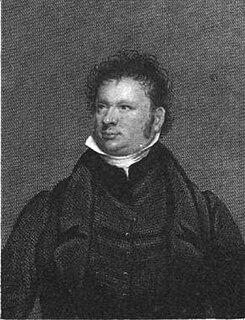
Thomas Middleton was an English Jacobean playwright and poet. He, with John Fletcher and Ben Jonson, was among the most successful and prolific of playwrights at work in the Jacobean period, and among the few to gain equal success in comedy and tragedy. He was also a prolific writer of masques and pageants.

John Addington Symonds, Jr. was an English poet and literary critic. A cultural historian, he was known for his work on the Renaissance, as well as numerous biographies of writers and artists. Although married with children, Symonds supported male love (homosexuality), which he believed could include pederastic as well as egalitarian relationships, referring to it as l'amour de l'impossible. He also wrote much poetry inspired by his same-sex affairs.

Philip Massinger was an English dramatist. His finely plotted plays, including A New Way to Pay Old Debts, The City Madam, and The Roman Actor, are noted for their satire and realism, and their political and social themes.
This article is a summary of the literary events and publications of 1631.
This article contains information about the literary events and publications of 1626.
This article contains information about the literary events and publications of 1613.
Cyril Tourneur was an English soldier, diplomat and dramatist who wrote The Atheist's Tragedy ; another play, The Revenger's Tragedy (1607), formerly ascribed to him, is now more generally attributed to Thomas Middleton.

George Chapman was an English dramatist, translator and poet. He was a classical scholar whose work shows the influence of Stoicism. Chapman has been speculated to be the Rival Poet of Shakespeare's sonnets by William Minto, and as an anticipator of the metaphysical poets of the 17th century. Chapman is best remembered for his translations of Homer's Iliad and Odyssey, and the Homeric Batrachomyomachia.
City comedy, also known as citizen comedy, is a genre of comedy in the English early modern theatre.

Francis Beaumont was a dramatist in the English Renaissance theatre, most famous for his collaborations with John Fletcher.

Nathan Field was an English dramatist. He was an actor.

John Fletcher (1579–1625) was a Jacobean playwright. Following William Shakespeare as house playwright for the King's Men, he was among the most prolific and influential dramatists of his day; during his lifetime and in the early Restoration, his fame rivalled Shakespeare's. He collaborated on writing plays with Francis Beaumont, and also with Shakespeare on three plays.

Tamburlaine the Great is a play in two parts by Christopher Marlowe. It is loosely based on the life of the Central Asian emperor Timur. Written in 1587 or 1588, the play is a milestone in Elizabethan public drama; it marks a turning away from the clumsy language and loose plotting of the earlier Tudor dramatists, and a new interest in fresh and vivid language, memorable action, and intellectual complexity. Along with Thomas Kyd's The Spanish Tragedy, it may be considered the first popular success of London's public stage.

The Spanish Tragedy, or Hieronimo is Mad Again is an Elizabethan tragedy written by Thomas Kyd between 1582 and 1592. Highly popular and influential in its time, The Spanish Tragedy established a new genre in English theatre, the revenge play or revenge tragedy. The play contains several violent murders and includes as one of its characters a personification of Revenge. The Spanish Tragedy is often considered to be the first mature Elizabethan drama, a claim disputed with Christopher Marlowe's Tamburlaine, and was parodied by many Elizabethan and Jacobean playwrights, including Marlowe, William Shakespeare and Ben Jonson.

John Warburton (1682–1759) was an antiquarian, cartographer, and Somerset Herald of Arms in Ordinary at the College of Arms in the early 18th century.

Boy player refers to children who performed in Medieval and English Renaissance playing companies. Some boy players worked for the adult companies and performed the female roles as women did not perform on the English stage in this period. Others worked for children's companies in which all roles, not just the female ones, were played by boys.
The Tragedy of Bussy D'Ambois (1603–1607) is a Jacobean stage play written by George Chapman. Classified as either a tragedy or "contemporary history," Bussy D'Ambois is widely considered Chapman's greatest play, and is the earliest in a series of plays that Chapman wrote about the French political scene in his era, including the sequel The Revenge of Bussy D'Ambois, the two-part The Conspiracy and Tragedy of Charles, Duke of Byron, and The Tragedy of Chabot, Admiral of France.
Robert Allot was a London bookseller and publisher of the early Caroline era; his shop was at the sign of the black bear in St. Paul's Churchyard. Though he was in business for a relatively short time – the decade from 1625 to 1635 – Allot had significant connections with the dramatic canons of the two greatest figures of English Renaissance theatre, William Shakespeare and Ben Jonson.

William Oxberry (1784–1824) was an English actor. He also wrote extensively on the theatre, and was a printer and publisher.











